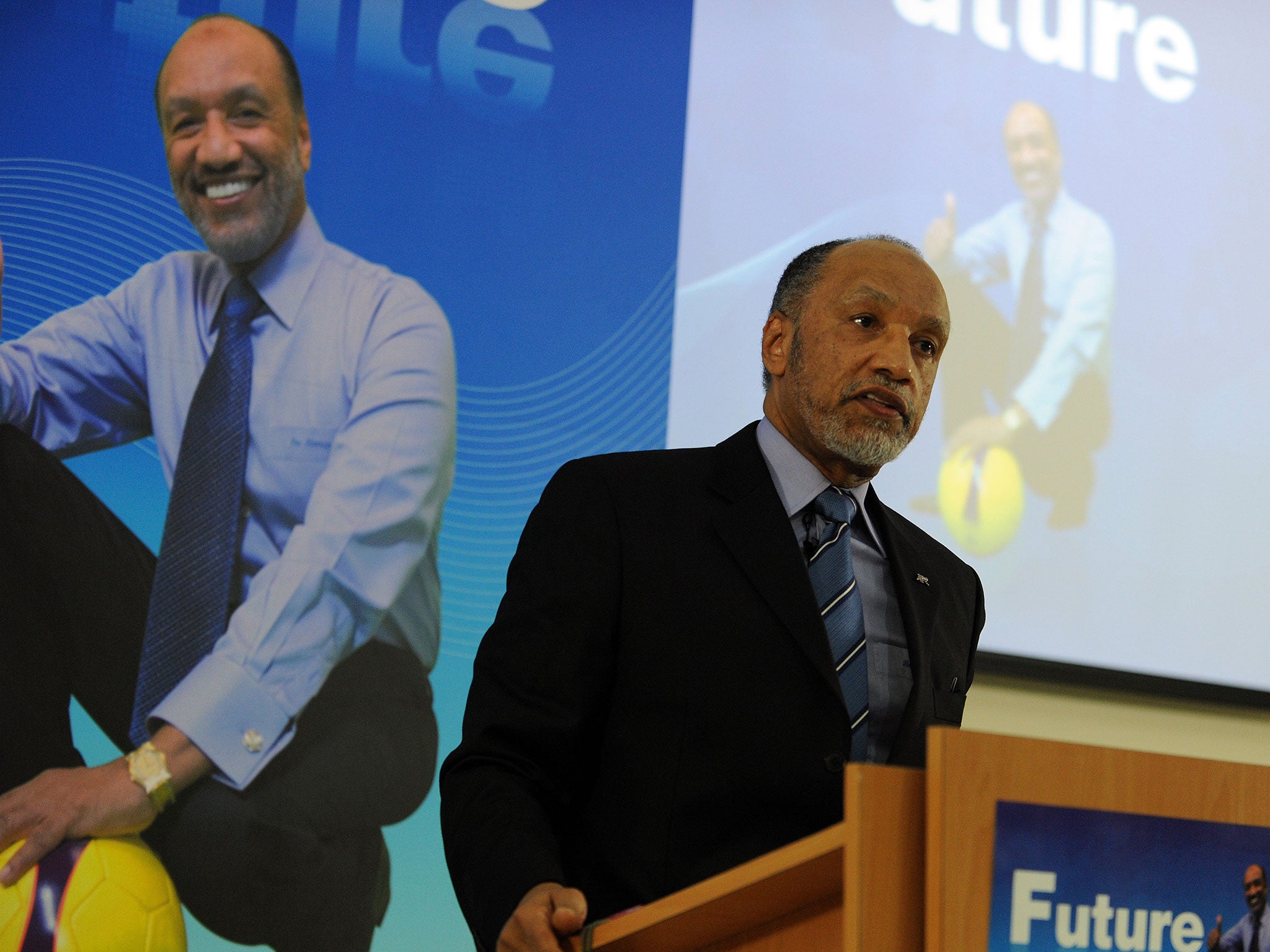Fifa corruption: Qatar never met the brief, so why should arrests surprise us?
As Swiss police swoop in Zurich, Tim Rich reports how the 2022 World Cup bid raised questions from the very start

As famous last words go, the conclusion of Fifa’s evaluation report into Qatar’s World Cup bid should be written on the organisation’s gravestone: “If Qatar is awarded the hosting rights, Fifa’s legal risk appears to be low.”
As Swiss police began questioning senior members of Fifa over allegations of “criminal mismanagement and money laundering” over the awarding of the 2018 World Cup to Russia and the 2022 tournament to Qatar, the legal risk to football’s world governing body regarding the latter appears enormous.
The controversy surrounding this award is huge. Fifa’s report should have concluded by pointing out that a World Cup in the emirate was unworkable. Summer temperatures from the rocky, scrubby desert reach 50 degrees – switching it to winter was not then an option.
It had only one major city – Fifa requires eight. It had no tradition of football. Nine of the 12 stadiums would be within 20 miles of each other – something the evaluation report did concede would be a problem. Qatar’s record on human rights was lamentable. Who could have backed such a proposal?
Pep Guardiola endorsed it – and is the emirate’s dream candidate to coach the national team. The Uefa president, Michel Platini, voted for it.
In contrast to the FBI investigation into bribery surrounding the Copa America, which led to one of Fifa president Sepp Blatter’s greatest allies Jeffrey Webb, the president of Concafaf, being arrested, the scandals surrounding Qatar have left the Swiss relatively untouched.
Blatter voted for the United States to host the 2022 tournament in an effort to heighten the richest nation on earth’s interest in “soccer”. With the FBI issuing arrest warrants for some of his colleagues, Blatter may have got his wish.
The men damaged by Qatar have mostly been those who have opposed Blatter in the past. Issa Hayatou, taken in for questioning by Swiss police, stood against him for the Fifa presidency in 2002. His most dangerous opponent, the Qatari Mohamed bin Hammam, was handed two life bans for allegedly attempting to bribe his way to the Fifa presidency in 2011.
Bin Hammam, then head of the Asian Football Federation, was described by the Qatar bid committee as “our biggest asset”. Their defence was that he used the bribes only for his presidential bid. None of the money, they argued, was to sway the World Cup vote.
When Bin Hammam fell, his fellow “conspirator”, Jack Warner, the then head of Concafaf, leaked a statement from Jérôme Valcke, Fifa’s general secretary, stating that Qatar had “bought the World Cup”. Valcke has since “adjusted” that comment.
Phaedra Almajid, who worked on the Qatar World Cup bid, has also retracted her allegation that three African Fifa delegates – Hayatou, the head of the Confederation of African Football, Jacques Anouma and Amos Adamu – were each paid $1.5m for voting for Qatar. Hayatou has been questioned by Swiss police over allegations of “criminal mismanagement and money laundering”.
Fifa’s policy of awarding the 2018 and the 2022 World Cups together promoted allegations that votes were swapped on a mutual basis. The 2018 hosts, Russia, having annexed territory of another Fifa member and been accused of doing too little to restrain racism and homophobia, have escaped lightly with the glare of publicity that has enveloped Qatar.
Almajid may have retracted her allegations but it was only after the Qatari government threatened to sue her for breach of confidentiality. Her Twitter page was very active as the arrests were made in Zurich and she also posted tweets accusing Coca-Cola and McDonald’s of being “sponsors of slavery”.
When Qatar launched its bid six Mays ago, only one stadium had been built. The rest would be part of the biggest engineering project the Middle East would have seen since the Pyramids. It included the construction of an artificial island, Lusail, that would stage the final. It will have two golf courses, two marinas, a shopping complex and cost $15bn (£9.8bn).
The cost in lives of those charged with building the dream has been of the kind the pharaohs would have recognised. The Nepalese Foreign Employment Board estimated that between January and November last year, 157 of its citizens employed on construction projects died in Qatar – 75 of heart attacks and 34 in workplace accidents.
Those who died erecting the pyramids were buried with their tools. Those who died building Qatar 2022 have often been treated with far less honour.
Join our commenting forum
Join thought-provoking conversations, follow other Independent readers and see their replies
Comments
Bookmark popover
Removed from bookmarks